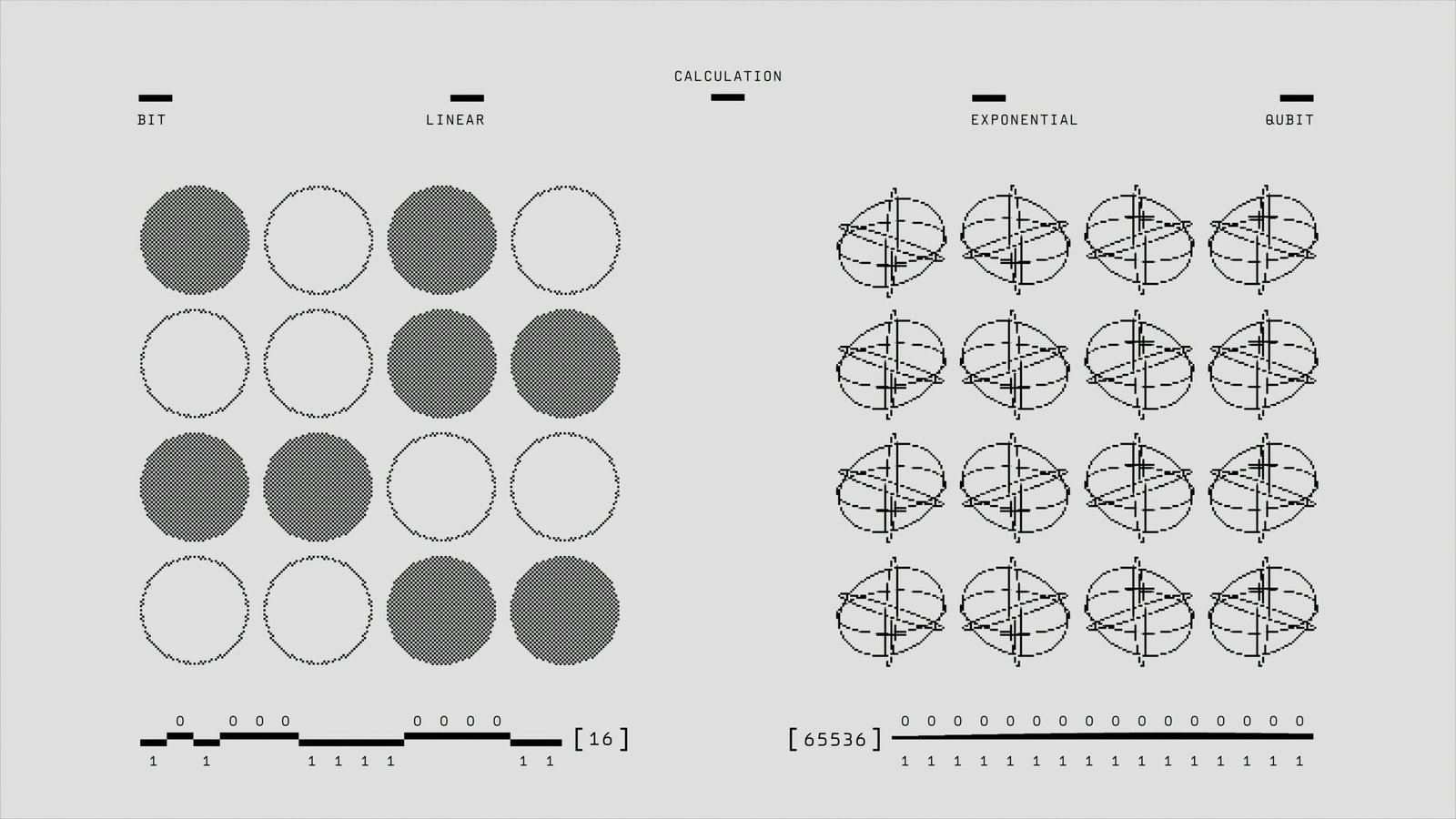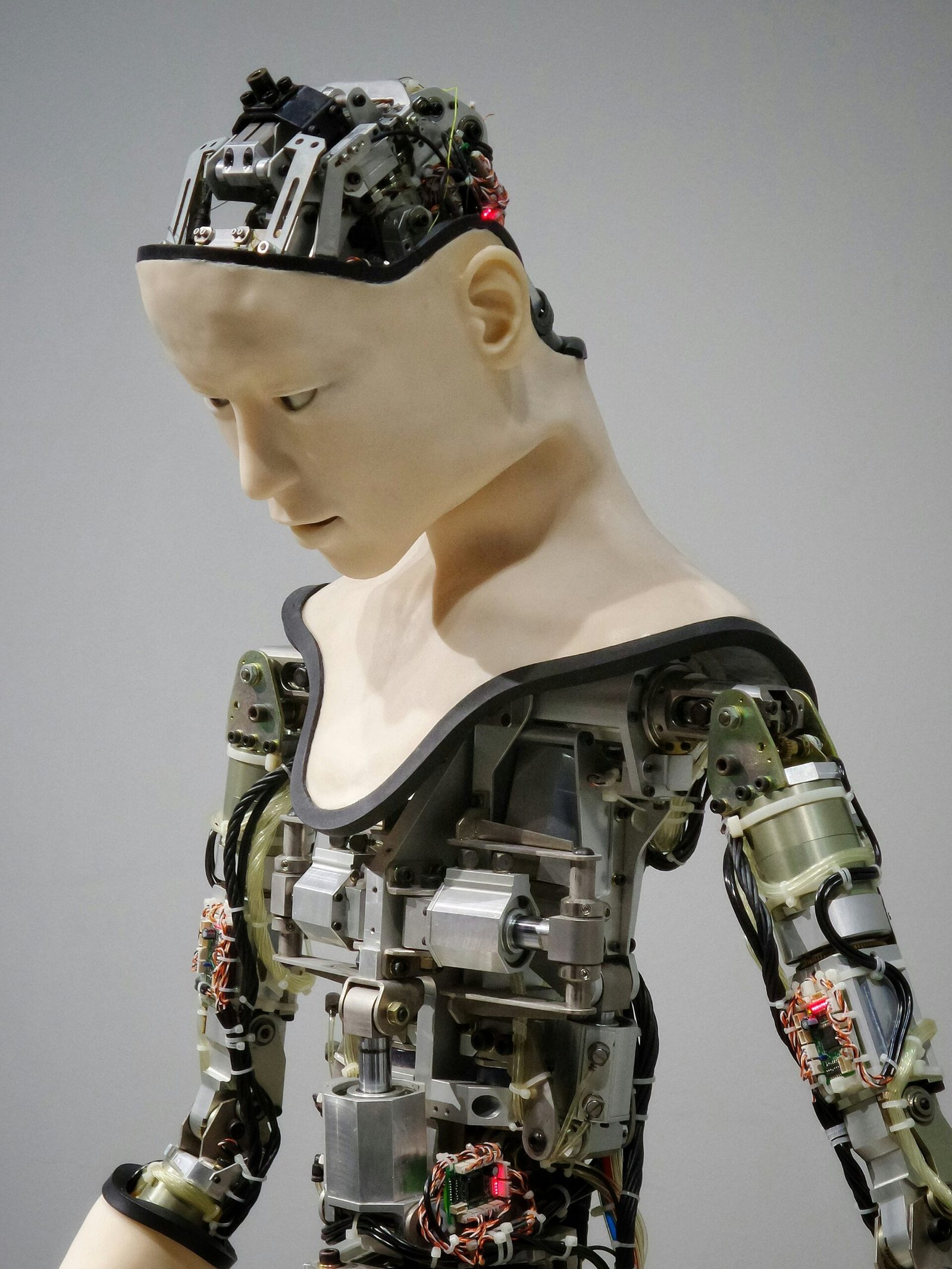
Introduction to Quantum Supremacy
Quantum supremacy represents a pivotal moment in the realm of quantum computing, marked by the ability of a quantum computer to solve a problem that classical computers practically cannot. This milestone differentiates quantum computing from classical computing through its use of qubits, which leverage the principles of superposition and entanglement to process information in fundamentally different ways.
Classical computers, the backbone of our current digital world, use bits as their smallest unit of data, which can be either a 0 or a 1. Quantum computers, on the other hand, use qubits, which can exist simultaneously in multiple states (both 0 and 1) due to superposition. This allows quantum computers to perform many calculations at once, drastically increasing their computational power compared to classical counterparts. Entanglement, another quantum phenomenon, ensures that qubits become interconnected, such that the state of one qubit can depend on the state of another, no matter the distance between them, facilitating even more complex computations.
Google’s 2019 announcement regarding their quantum computer, Sycamore, achieving quantum supremacy, was a landmark event. Sycamore successfully performed a specific task in just 200 seconds that would take the most powerful classical supercomputers approximately 10,000 years to complete. This demonstration showcased the unprecedented potential of quantum computing to tackle problems previously deemed unsolvable by classical means.
The journey to this breakthrough has been a long one. The theoretical foundations of quantum computing were laid down in the early 1980s by pioneers like Richard Feynman and David Deutsch. Over the decades, advancements in quantum algorithms, error correction, and hardware design have steadily progressed, leading to significant milestones such as IBM’s small-scale quantum devices and Microsoft’s quantum software developments. However, Google’s Sycamore represents a significant leap forward, validating decades of research and investment in the field.
Understanding quantum supremacy requires grappling with several key concepts. Qubits form the basis of quantum information processing, superposition enables them to exist in multiple states simultaneously, and entanglement links qubits in ways that defy classical logic. Together, these principles underpin the extraordinary capabilities of quantum computers, heralding a new era in computational technology.
Technical Aspects of Achieving Quantum Supremacy
Quantum supremacy signifies a milestone where quantum computers surpass classical computers in specific computational tasks. This achievement hinges on the unique architecture and design of quantum computers, which leverage principles of quantum mechanics to perform calculations at remarkable speeds.
At the heart of quantum computing are quantum bits, or qubits. Unlike classical bits, which exist in a binary state of either 0 or 1, qubits exploit superposition, enabling them to exist in multiple states simultaneously. This property exponentially increases the computational power of quantum systems. Quantum gates manipulate qubits through operations analogous to classical logic gates but based on quantum mechanics. These gates are pivotal for executing complex algorithms required for quantum supremacy.
However, quantum systems are susceptible to errors due to decoherence and quantum noise. Decoherence occurs when quantum states lose their coherence through interaction with the environment, leading to loss of information. Error correction mechanisms, such as the surface code, are essential for mitigating these issues, ensuring reliable quantum computation. These mechanisms correct errors without measuring the quantum state directly, preserving the information’s integrity.
A landmark experiment demonstrating quantum supremacy was conducted by Google in 2019. The company’s Sycamore processor, a 54-qubit machine, achieved a groundbreaking task: sampling the output of a pseudo-random quantum circuit. This task, which involved generating and verifying a sequence of numbers, was completed in approximately 200 seconds by the quantum computer. In contrast, simulating the same task on a classical supercomputer would take an estimated 10,000 years, thereby highlighting the profound computational advantage of quantum systems.
Quantum algorithms, such as Shor’s algorithm for factoring large numbers and Grover’s algorithm for database search, offer significant speedups over their classical counterparts. Shor’s algorithm, for example, can factorize integers exponentially faster than the best-known classical algorithm, posing a potential risk to classical cryptographic systems. Similarly, Grover’s algorithm provides a quadratic speedup for unstructured search problems.
In essence, the technical bedrock of quantum supremacy lies in the quantum computer’s architecture, error correction methodologies, and the implementation of quantum algorithms that outstrip classical computational capabilities. This paradigm shift heralds a new era of computational possibilities, promising groundbreaking advancements across various scientific and technological domains.
Potential Applications of Quantum Supremacy
Quantum supremacy, once fully realized, holds the potential to revolutionize numerous fields and industries. In cryptography, for instance, quantum computers could render current encryption methods obsolete. Quantum algorithms like Shor’s algorithm can factorize large numbers exponentially faster than classical computers, posing a significant threat to traditional encryption techniques. However, this also paves the way for quantum cryptography, promising unbreakable codes and secure communication channels through methods like quantum key distribution (QKD).
In the realm of drug discovery, quantum supremacy could expedite the process of molecular modeling and simulations. Quantum computers can simulate complex molecular interactions more accurately, enabling the discovery of new drugs and materials at an unprecedented pace. For example, pharmaceutical companies could leverage quantum computing to understand protein folding and molecular behaviors, leading to more effective treatments for diseases.
Material science is another field set to benefit immensely. Quantum computers can analyze and predict the properties of new materials with high precision. This could lead to breakthroughs in developing superconductors, stronger and lighter materials, and more efficient energy storage solutions. Industries like aerospace and construction could see significant advancements as a result.
Optimization problems are ubiquitous across various sectors, from logistics to financial modeling. Quantum supremacy could provide optimal solutions to these complex problems more efficiently. For instance, optimizing delivery routes for supply chain management or portfolio optimization in finance could be revolutionized by quantum algorithms, leading to cost savings and improved performance.
The enhancement of machine learning and artificial intelligence is also a promising application. Quantum computing could accelerate training times for AI models, enabling the handling of more complex data sets and improving accuracy. This could lead to more sophisticated AI applications in healthcare, finance, and beyond.
Despite these promising applications, several challenges and limitations need to be addressed before quantum computing can be widely adopted. Issues such as error rates, qubit coherence, and the need for extremely low temperatures to operate quantum computers are significant hurdles. Moreover, the development of quantum algorithms and their integration with existing classical systems require further research and innovation. As the field progresses, overcoming these challenges will be crucial for realizing the full potential of quantum supremacy.
Ethical and Societal Implications
The advent of quantum supremacy heralds a new era of technological marvels, but it also brings forth significant ethical and societal challenges. One of the most pressing concerns lies in the sphere of data security and privacy. As quantum computers possess the capability to break current cryptographic codes, the potential for massive data breaches becomes a paramount issue. This threatens to render existing encryption methods obsolete, thereby exposing sensitive information to unprecedented risks. Consequently, there is an urgent need for the development of quantum-resistant encryption algorithms to safeguard data integrity.
Beyond data security, the economic and geopolitical ramifications of quantum supremacy are profound. Nations are fiercely competing to achieve quantum technology dominance, recognizing its potential to redefine global power structures. This race could exacerbate existing geopolitical tensions, as countries invest heavily in quantum research and development to gain a strategic edge. Economically, the disparities between quantum-capable and non-quantum-capable regions could widen, leading to an uneven distribution of technological benefits. Such disparities may augment socio-economic inequalities, as regions lagging in quantum advancements could face significant disadvantages.
Ethically, the development and deployment of quantum computers necessitate careful consideration. The potential for widening technological disparities between different socio-economic groups raises questions about equitable access to quantum technologies. It is crucial to address how these advancements can be distributed fairly to avoid deepening the digital divide. Additionally, the ethical implications of using quantum computers in fields such as artificial intelligence and surveillance must be scrutinized to prevent misuse and ensure that these powerful tools are employed responsibly.
Reflecting on how society can prepare for and responsibly manage the transition to a quantum computing era is essential. Public and private sectors must collaborate to establish regulatory frameworks that promote ethical practices while fostering innovation. Education and public awareness campaigns can help bridge knowledge gaps and prepare the workforce for the quantum age. By proactively addressing these challenges, society can harness the transformative potential of quantum supremacy while mitigating its adverse effects.










